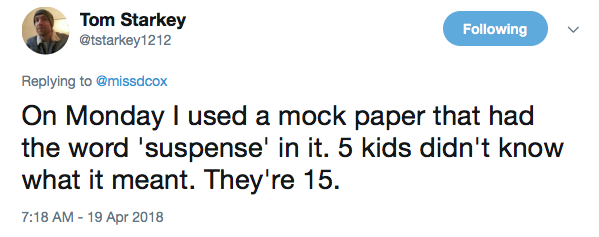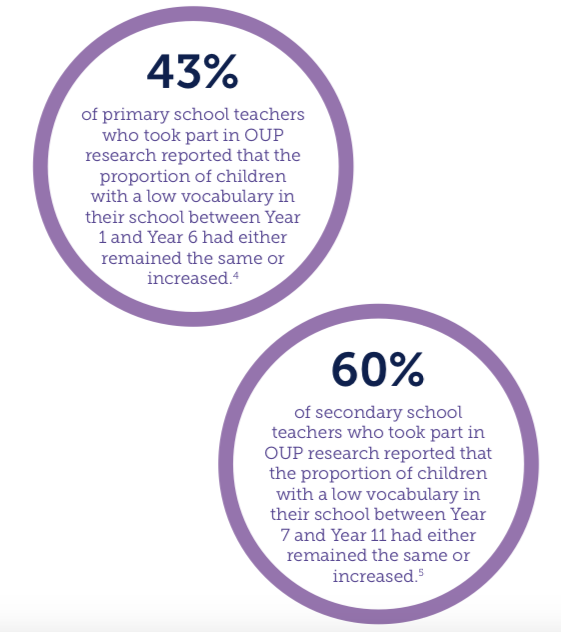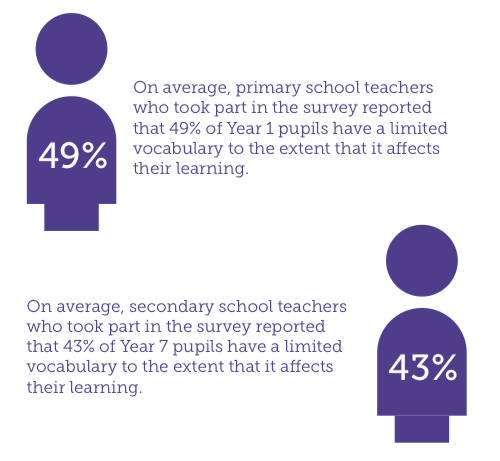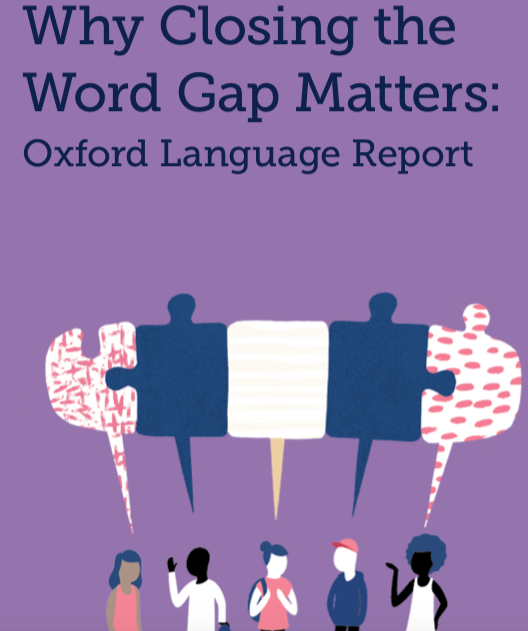As a teacher who writes about the importance of literacy and vocabulary – and one who works with countless teachers across the country – I find myself talking repeatedly about the issue of the ‘word gap’ in our classrooms.
Again and again, I am faced with the glaring examples of the problem that many of our pupils face in school and beyond. This morning, the first thing I read was this tweet by Tom Starkey:

Like so many examples I hear from fellow teachers, it is punch-you-in-the-face stark. The access to the language of school, so vital to success in school and all that unlocks of the world, proves a determining factor for the children we teach.
The aforementioned tweet was in response to this BBC article on ‘Narrow vocabulary ‘hits pupils’ grades’‘. After a little digging, this excellent Guardian article by Richard Adams on ‘Teachers in UK report ‘vocabulary deficiency’‘ reported the same issue.
Both articles referred to intriguing new research from Oxford University Press on the ‘Why Closing the Word Gap Matters: Oxford Language Report’. The report charts a very interesting survey of 1300 teachers and their perspectives on vocabulary and language in schools.
The research reveals how teachers see vocabulary as a vital issue for their pupils. In many ways, it replicates the countless conversations I have had with teachers about literacy, language and the important role of vocabulary in learning. The gaps, the problems, the plans, the ideas and determination to do better for our pupils.
The statistics compiled on teacher attitudes are stark:


The report goes onto share a wealth of expertise and school examples that attend closing the vocabulary gap and related issues. The report draws upon some of the best researchers in the world, with insights from the likes of Kate Nation, from Oxford University. Her insight is sharp and to the point:
“Language variation in children is complex and difficult to attribute to a single cause. Regardless of the causes, low levels of vocabulary set limits on literacy, understanding, learning the curriculum and can create a downward spiral of poor language which begins to aspect all aspects of life.”
The report explores how the issue of vocabulary is a vital issue at primary school as well as secondary school. Rightly, the increased demands of the new curriculum have been cited as bringing the issue to our attention in a way that likely hasn’t been so glaringly obvious in years past. This is my experience. From infamous SATs tests about ‘dead dodos’, to bigger, harder GCSEs.
I implore every teacher and school leader to engage with this excellent research report. It shares so many great insights and offers some constructive solutions to the word gap. Most importantly, it adds more weight to the issue – offering more evidence so that we may act with purpose.
The final words should go to a wordsmith and school leader who has inspired me to read, write and talk about literacy and vocabulary, the peerless Geoff Barton:
“When we talk of closing the word gap, we actually mean something much bigger than that unassuming phrase implies.
We mean welcoming a child into a world of new ideas, insights and emotions, into a world that we, the word-rich, take for granted, and which we will routinely guarantee for our own children.”
